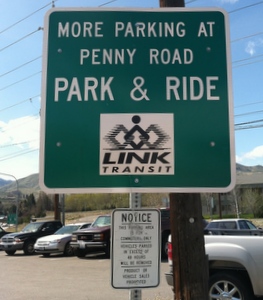
Shownotes Transcript
Today, as I drove my oldest son to High School, we got stuck in traffic. The road where we were stuck isn't usually a busy one. It is a windy road that goes through a residential area. The people in the traffic jam were not adults going to work; they were highschoolers. Here in the U.S, most students who are 16 years old or older have cars. Often they work after school to pay for the gas and insurance, and perhaps also to make the monthly car payment(1). They spend a lot of time working, so they can afford to have a car. Of course, it's not necessary when there are buses; however, it's an expectation. As I sat in the traffic jam, I thought about how wasteful the situation is. If only half of the students had cars, a lot of people would save money and time. Two people could travel to school in each car, instead of just one per car. There could be a car pooling(2) system, so a car owner could receive a little money for giving other students a lift. That would help him to pay for the gas, and he might not need(3) to work after school, but focus on his homework instead. The first time that I heard about car pooling was years ago. My mother-in-law was driving me somewhere, and we drove past a sign that said 'Park and Pool'. "Oh," I said. "I didn't know that there was a park and a swimming pool there." My mother-in-law laughed loudly and said, "No Anna, that's where you park your car and then car pool to your next destination." I had never heard of car pooling. Soon, after that, I found myself carpooling with about 10 other people. We would park our cars in that parking lot, and then get on a van to go to Central Washington University. It was a very economical way to get there and back, much better than each person taking his or her own car. Car ownership(4) in this country is a huge part of the culture, an expectation. I think, though, that life would be much easier if more people car pooled.
- 'The monthly car payment' is the payment made to the bank every month for ownership of a car. a. Our monthly car payment is about $300 dollars. b. They couldn't make their monthly car payment, so they sold the car and bought a smaller one.
- 'To car pool'. The word 'pool' is often used in English to mean 'share'. So car pooling is basically sharing a car. Here are some examples: a. The lost mountaineers pooled their resources, and found that they had enough to survive. b. They pooled their ideas and came up with a great solution. c. How about the four of us car pool, instead of driving four cars?
- 'He might not need to' is a very native sounding phrase that introduces hypothesis. a. If you work more hours during the week, you might not need to work at the weekend. b. If you car pooled, you might not need to get an extra job.
- 'Ownership' is the noun, like owner, that means that you possess something. It is the state of owning something. Let's see the examples. a. House ownership is something that most people want. (You could also say, 'Everybody wants to be the owner of a house/ everybody wants to own a house). b. The company is focusing on land ownership because, at the moment, land is a good price.
//
// //
//
